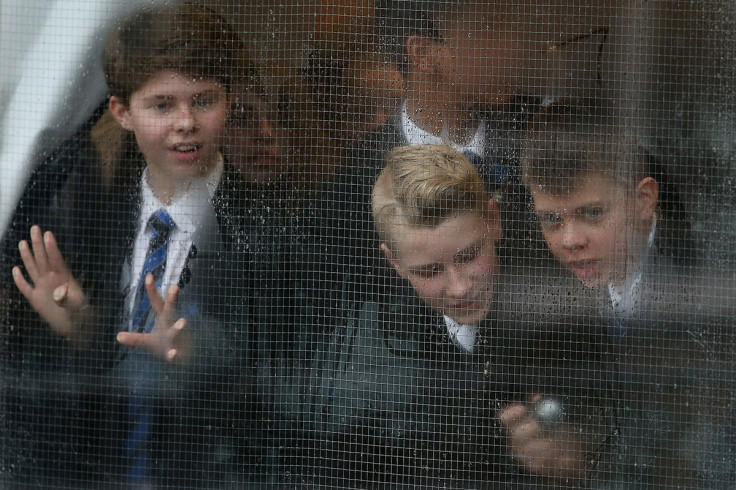School reports: Mumsnet's guide to cracking teachers' code and finding out truth about your children

As parents eye the start of the new school term with increased relief possibly verging on desperation, thoughts on Mumsnet turn to the end-of-year reports that will soon be winging their way homewards.
Schools these days are required to be considerably more positive about their pupils than they used to. A good job too, judging by what Mumsnet users recalled of their own childhood reports.
"My husband's said that he could work well 'when cornered like a rat'," recalled one Mumsnet user. "We expect great things of her, and we been expecting them for a very long time," lamented another.
"Ever trying - without success", "Uses brain only when all else fails", "The dawn of legibility in his handwriting has revealed his complete inability to spell" - these are all classic examples of teachers' wit, which probably would not escape the head's red pen today.
Back then, though, teachers saw no reason to pull any punches. One Mumsnetter was described as "a strange child, rather hostile when questioned". "She is mal-coordinated" was the straightforward verdict on another which is marginally preferable, I suppose, to the more existential "Who is she?" Relatively speaking, the Mumsnet user whose parents were told their child was "doing better, but still has a tendency to fall off her chair," must have been overjoyed.
My other half was memorably described as "Clever. In the pejorative sense." Yes, indeed, those were the days when teachers could really let parents know that they hated their child.
School reports take a kinder approach
Today, mercifully, children's school reports are much kinder. None of us wants to hear our child, whatever we may think, is a vile little blighter or a hopeless case. The problem is this often leaves us floundering - unable to read between the lines and unsure what exactly the teacher is trying to say.
Thankfully, the teaching contingent on Mumsnet have shed some light. First off, they confirm what we parents have long suspected - when it comes to school reports there is an informally accepted code at work. Faced with the requirement to be upbeat, teachers have developed cunning ways to signal to parents the truth about their offspring. At the risk of incurring the wrath of the teachers' equivalent of the Magic Circle, here's what you need to know.
The child with a "good understanding of the rules" is an incorrigible tell-tale. "Very articulate" means she never shuts up. The "dynamic" pupil is a noisy little bugger, while the "independent" one will not do as they're blimming well told. "Strong leadership skills" denotes atrocious bossiness, while the child with a vivid imagination is, sadly, a pathological liar.
"Likes to question and challenge" is a terrible know-it-all, the "rather solitary child" has nits, and the "spirited" pupil has brought several teachers to the point of nervous collapse. Surely "quiet and focused, has learned well this year" must be a cause for celebration? Alas, it means that, come report time, the teacher cannot recall a single distinguishing feature about your rather anodyne offspring.
Some flaws, however, are impossible to conceal ("Reason for detention: placing a blue-tack penis on my desk") and occasionally even today's cohort of teachers cannot resist displaying the mordant wit of their forebears. My daughter's head of English for one, who acerbically mused: "What can I say about Lola... that she hasn't already said about herself?"
Stop the sugar
But generally, even bad news comes with a barrel-load of sugar-coating. "When my son was nine," recalls one Mumsnetter, "we were told he had 'highly sophisticated avoidance techniques for handwriting'." Another was told her son is perfecting his French accent. "Hooray! He must now realise that there are real words in the French language that he must try to say, instead of making up his own." Ah. (Though perhaps this is not the end of the world, my own mother applies a similar theory to every country she visits and it seems to work fine for her.)
Indeed, so ambiguously phrased are many of the assessments these days, one can only guess at the back stories. Take the boy who is "able to carry out everyday tasks in new and unusual ways" or the girl who "is aware that she needs to take care when using scissors and cutlery". The mind boggles at what might have gone on there.
It's worth remembering though, as report time approaches again, regardless of whether Jack or Isobel have been a joy to teach or an utter pain this year, there is only one sentence that you really need to fear. If your primary school-aged child is "always keen to share her news from home", you can bet your bottom dollar she's already told the teacher that you swear like a trooper, drink wine before the school run, and that your other half is in banged up in jail.
Justine Roberts is founder and chief executive of Mumsnet and Gransnet. She has also sat on the Expert Steering Group on Family Support Services, the Consultative Council of the British Board of Film Classification and the Commission on Civil Society and Democratic Engagement.
You can find her own Twitter @Justine_Roberts, or visit the Mumsnet page @MumsnetTowers. Alternatively, for all information about Mumsnet please visit the website here.
On 16 May Mumsnet is holding its annual Workfest event in London, featuring talks from the likes of Jo Swinson MP, Shami Chakrabarti and Anabel Karmel MBE. For more information please visit the website here.
© Copyright IBTimes 2025. All rights reserved.






















